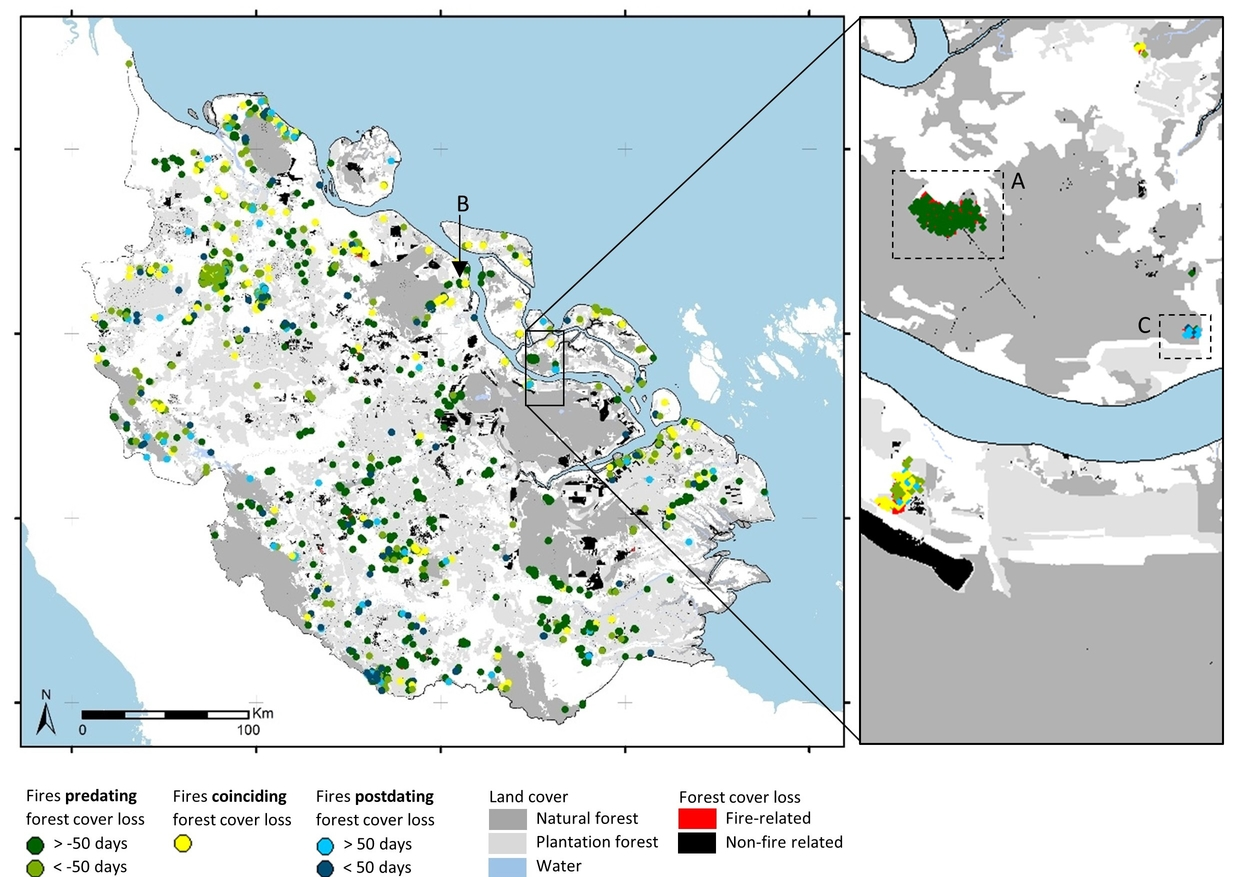Satelligence is very proud to have contributed an important paper on forest change detection using Sentinel1 data, named “Characterizing Tropical Forest Cover Loss Using Dense Sentinel-1 Data and Active Fire Alerts“. Together with Wageningen University & Research, we are improving these detection methods, essential to help protect our forests!
Read the abstract of the paper below. The full paper can be downloaded here
Abstract
Fire use for land management is widespread in natural tropical and plantation forests, causing major environmental and economic damage. Recent studies combining active fire alerts with annual forest-cover loss information identified fire-related forest-cover loss areas well, but do not provide detailed understanding on how fires and forest-cover loss are temporally related. Here, we combine Sentinel-1-based, near real-time forest cover information with Visible Infrared Imaging Radiometer Suite (VIIRS) active fire alerts, and for the first time, characterize the temporal relationship between fires and tropical forest-cover loss at high temporal detail and medium spatial scale. We quantify fire-related forest-cover loss and separate fires that predate, coincide with, and postdate forest-cover loss. For the Province of Riau, Indonesia, dense Sentinel-1 C-band Synthetic Aperture Radar data with guaranteed observations of at least every 12 days allowed for confident and timely forest-cover-loss detection in natural and plantation forest with user’s and producer’s accuracy above 95%. Forest-cover loss was detected and confirmed within 22 days in natural forest and within 15 days in plantation forest. This difference can primarily be related to different change processes and dynamics in natural and plantation forest. For the period between 1 January 2016 and 30 June 2017, fire-related forest-cover loss accounted for about one third of the natural forest-cover loss, while in plantation forest, less than ten percent of the forest-cover loss was fire-related. We found clear spatial patterns of fires predating, coinciding with, or postdating forest-cover loss. Only the minority of fires in natural and plantation forest temporally coincided with forest-cover loss (13% and 16%) and can thus be confidently attributed as direct cause of forest-cover loss. The majority of the fires predated (64% and 58%) or postdated forest-cover loss (23% and 26%), and should be attributed to other key land management practices. Detailed and timely information on how fires and forest cover loss are temporally related can support tropical forest management, policy development, and law enforcement to reduce unsustainable and illegal fire use in the tropics.

